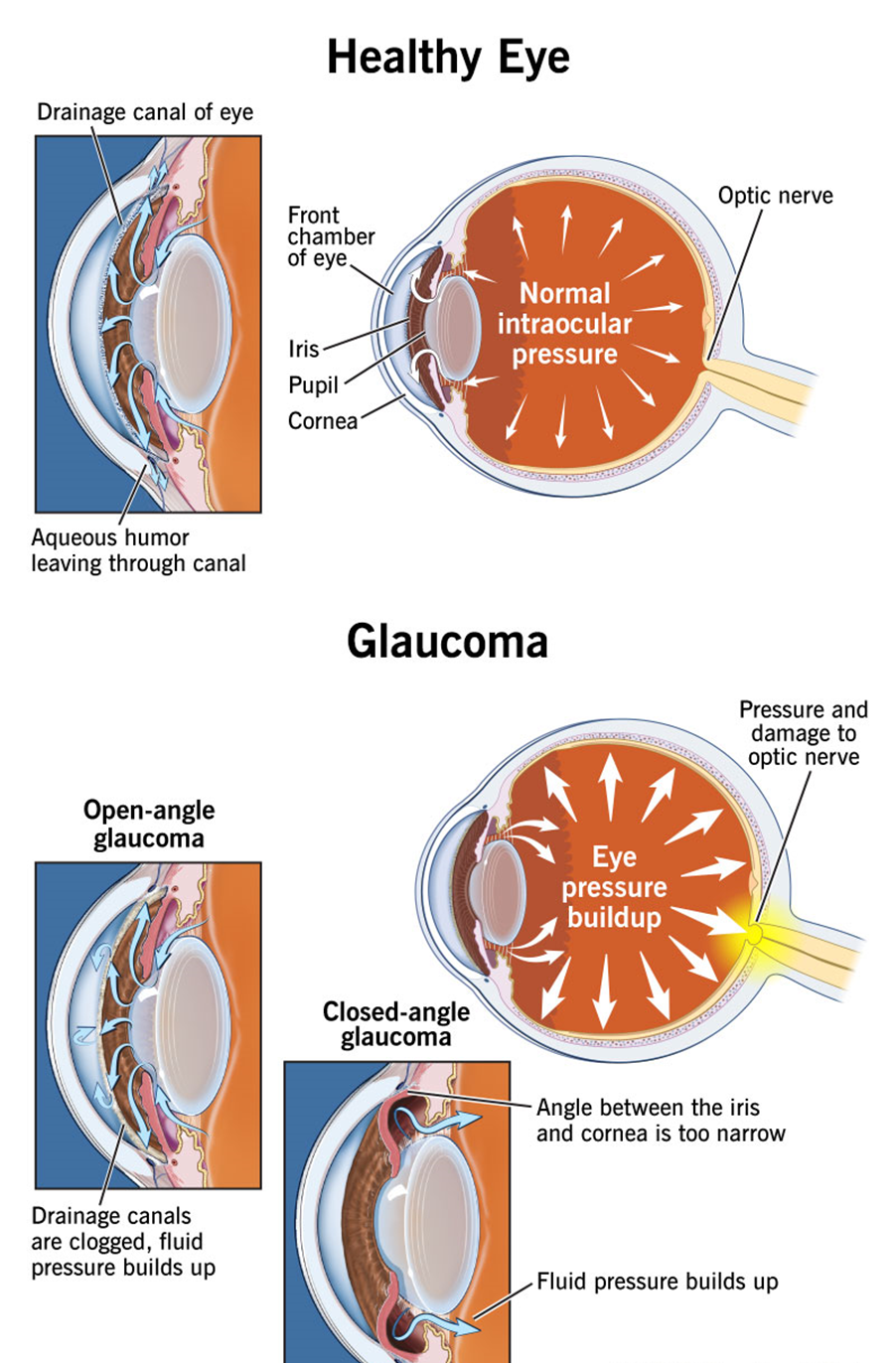A client asks the nurse about a prescription for the antihistamine, diphenhydramine (Benadryl). The nurse should teach the client that this medication is contraindicated in clients who have a history of which condition?
Asthma
Hypertension
Glaucoma
Depression
The Correct Answer is C
Choice A reason: Asthma
Diphenhydramine is an antihistamine that can cause drying of the airways and thickening of bronchial secretions, which might exacerbate asthma symptoms. However, it is not strictly contraindicated in asthma patients. Instead, caution is advised, and it should be used under medical supervision if necessary.
Choice B reason: Hypertension
While diphenhydramine can cause mild increases in blood pressure due to its anticholinergic effects, it is not contraindicated in patients with hypertension. Patients with hypertension should use it cautiously and under medical advice, but it is not an absolute contraindication.
Choice C reason: Glaucoma
Diphenhydramine is contraindicated in patients with glaucoma, particularly closed-angle glaucoma. This is because diphenhydramine has anticholinergic properties that can increase intraocular pressure, potentially worsening the condition. Patients with glaucoma should avoid using diphenhydramine to prevent complications related to increased eye pressure.

Choice D reason: Depression
Diphenhydramine is not contraindicated in patients with depression. However, it can cause drowsiness and sedation, which might affect mood and energy levels. Patients with depression should use it cautiously and under medical supervision, but it is not an absolute contraindication.
Nursing Test Bank
Naxlex Comprehensive Predictor Exams
Related Questions
Correct Answer is D
Explanation
Choice A Reason:
Sleep deprivation is incorrect. While sleep deprivation can cause confusion and disorientation, it is less likely to cause abrupt onset of altered mental status and hallucinations. Sleep deprivation typically results in gradual cognitive decline and fatigue rather than sudden changes.
Choice B Reason:
Normal signs of aging is incorrect. Normal aging can involve some cognitive decline, but it does not typically cause sudden and severe symptoms like hallucinations and significant disorientation. These symptoms are more indicative of an acute condition.
Choice C Reason:
Dementia is incorrect. Dementia involves a gradual decline in cognitive function over time and does not typically present with sudden onset of symptoms. While dementia can include hallucinations and disorientation, these symptoms usually develop progressively.
Choice D Reason:
Delirium is correct. Delirium is characterized by a sudden onset of confusion, disorientation, and changes in mental status. It is often triggered by acute medical conditions such as infections, including UTIs. Elderly patients are particularly susceptible to delirium, which can include symptoms like hallucinations and severe confusion.
Correct Answer is D
Explanation
Choice A reason: To provide a means for medication administration
A Jackson-Pratt (JP) drain is not used for medication administration. Its primary function is to remove fluids that accumulate in a surgical site, which helps to prevent infection and promote healing. Medication administration is typically done through other means such as intravenous (IV) lines or oral medications.
Choice B reason: To eliminate the need for wound dressings
The JP drain does not eliminate the need for wound dressings. Dressings are still required to protect the wound site, absorb any additional drainage, and prevent infection. The JP drain works in conjunction with dressings to manage wound care effectively.
Choice C reason: To limit the amount of bleeding from the surgical site
While the JP drain can help manage bleeding by removing accumulated blood, its primary purpose is not to limit bleeding. Instead, it is designed to prevent the buildup of fluids, including blood, which can lead to complications such as hematomas or infections.
Choice D reason: To prevent fluid from accumulating in the wound
The primary purpose of a Jackson-Pratt (JP) drain is to prevent fluid from accumulating in the wound. This includes blood, lymphatic fluid, and other bodily fluids that can collect at the surgical site. By removing these fluids, the JP drain helps to reduce the risk of infection, promote healing, and decrease the likelihood of complications.
Whether you are a student looking to ace your exams or a practicing nurse seeking to enhance your expertise , our nursing education contents will empower you with the confidence and competence to make a difference in the lives of patients and become a respected leader in the healthcare field.
Visit Naxlex, invest in your future and unlock endless possibilities with our unparalleled nursing education contents today
Report Wrong Answer on the Current Question
Do you disagree with the answer? If yes, what is your expected answer? Explain.
Kindly be descriptive with the issue you are facing.
